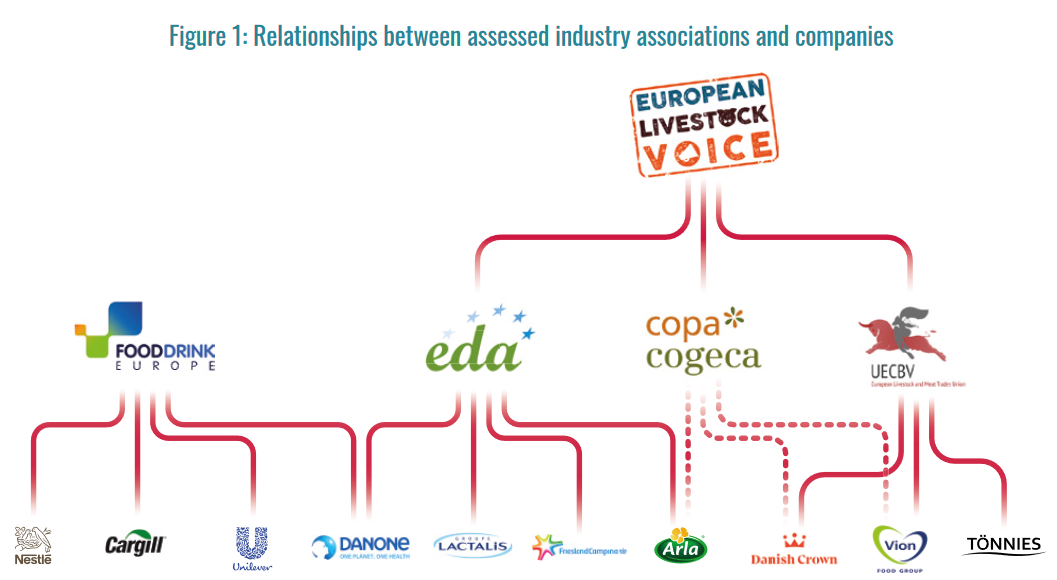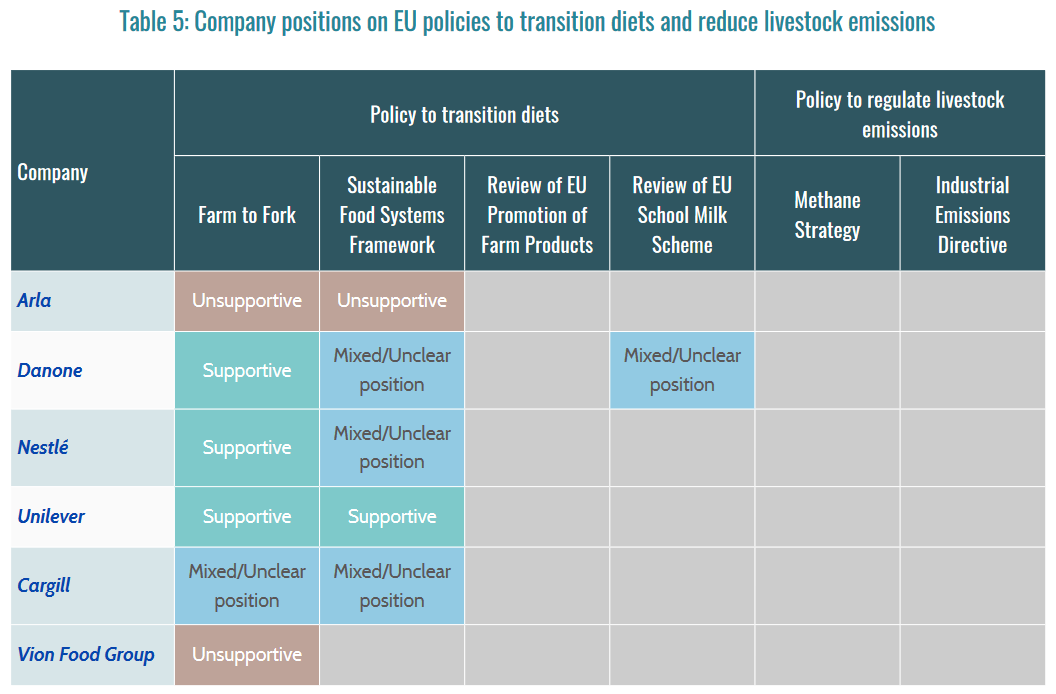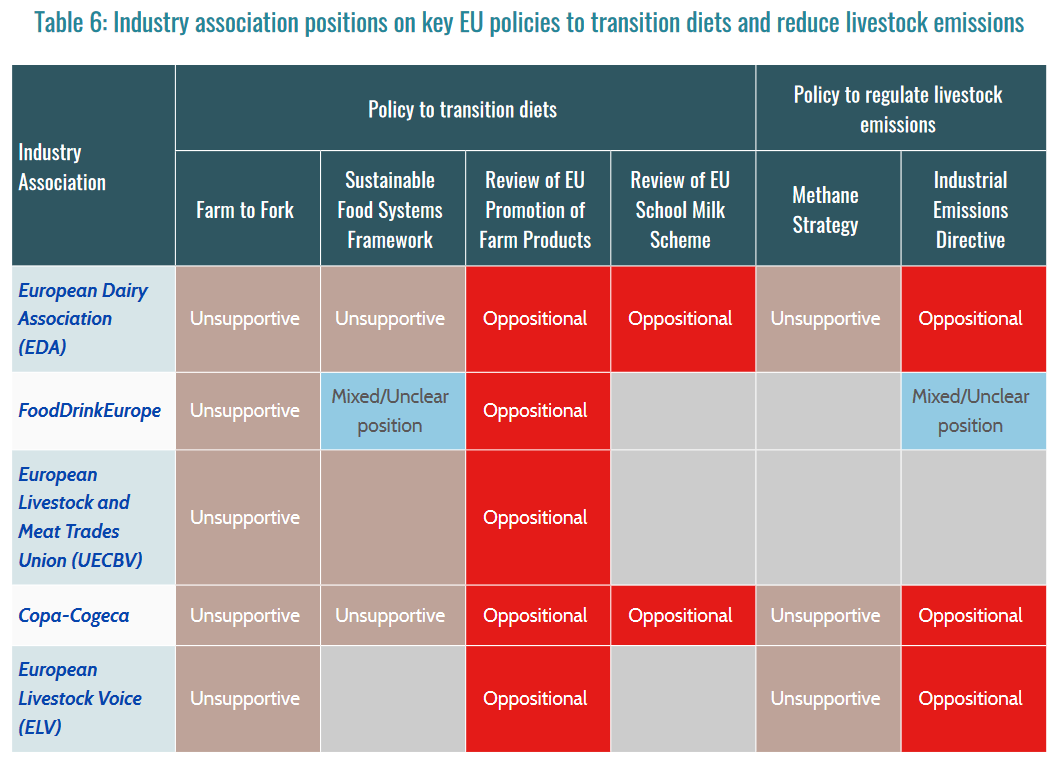InfluenceMap’s new analysis outlines a campaign over the last three years stemming from the meat and dairy industry against policy efforts to address the sector’s climate impact. The strategic advocacy appears to have had a significant impact on the ambition of EU policymaking related to the production and consumption of meat and dairy products in Europe.
- This report examines corporate engagement from ten companies and five industry associations in the meat and dairy sector on six EU policies to reduce emissions in line with the Intergovernmental Panel on Climate Change (IPCC) 2019 Special Report on Climate Change and Land use and 2022 Working Group III recommendations.
- The analysis suggests a split between different parts of the meat and dairy sector, with consumer goods focused companies, such as Unilever and Nestlé, appearing to engage more positively on the EU policies covered by this report than meat and dairy producer companies, such as Arla and Danish Crown. Industry associations representing these companies were highly engaged on these policies, appearing to align with the more oppositional positions taken by food producer companies.
- Meat and dairy producers, and the industry associations that represent them, use a combination of strategic narrative building and detailed policy engagement that mirrors the tactics of the fossil fuel industry to obstruct climate policy tackling the sector’s emissions. Both sectors employ similar misleading narratives through strategic public messaging to sow doubt and undermine the need to tackle GHG emissions from the meat and dairy sector.

- The industry’s efforts appear to have largely succeeded in attempts to weaken key climate policies aimed at the sector in the EU. Following intense corporate advocacy on the policies in 2020-23, a third of the policies included in this report were significantly weakened and half appear to have stalled following oppositional advocacy from companies and industry associations. This includes policies such as the Sustainable Food Systems Framework, a ‘flagship’ policy of the Farm to Fork Strategy, and the revision of the Industrial Emissions Directive which regulates pollutant emissions from European farms.
- Intensive advocacy appears to have influenced the main European conservative political party’s narratives regarding opposition to specific policies affecting the transition of diets and agricultural sector emissions, as well as their approach to the 2024 EU election. In 2022-23, the European People’s Party’s points of opposition to key policies and reducing GHG emissions from the sector mirrored narratives pushed by meat and dairy producers and the industry associations that represent them.
You must log in or register to comment.
It looks like the full report is behind a registration (free), so I’m going to paste some of the figures here:




there are a lot of tables


